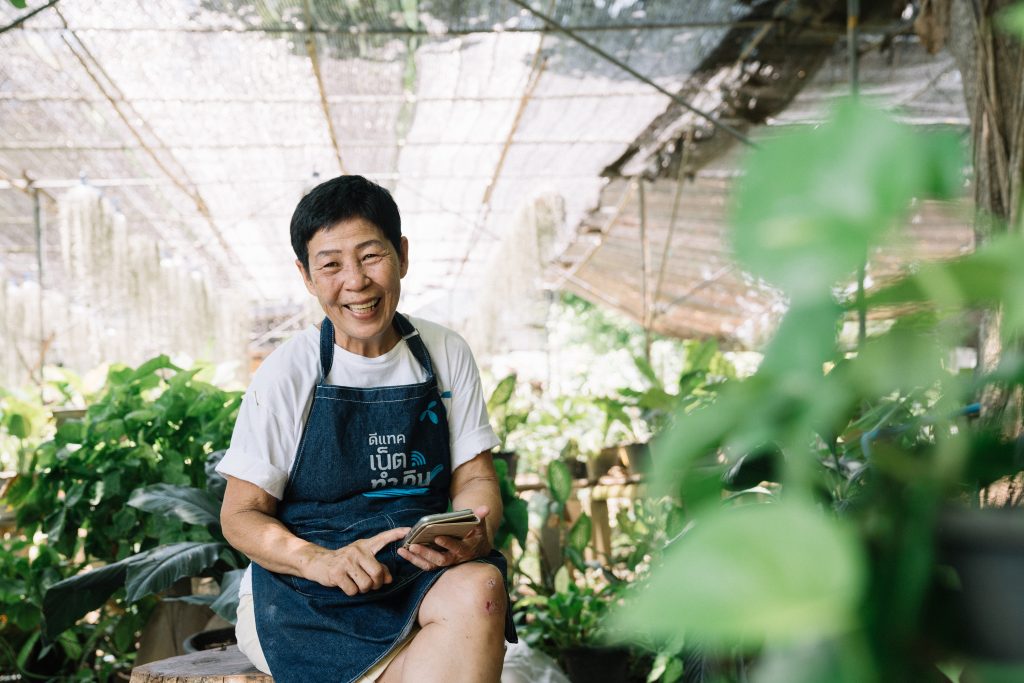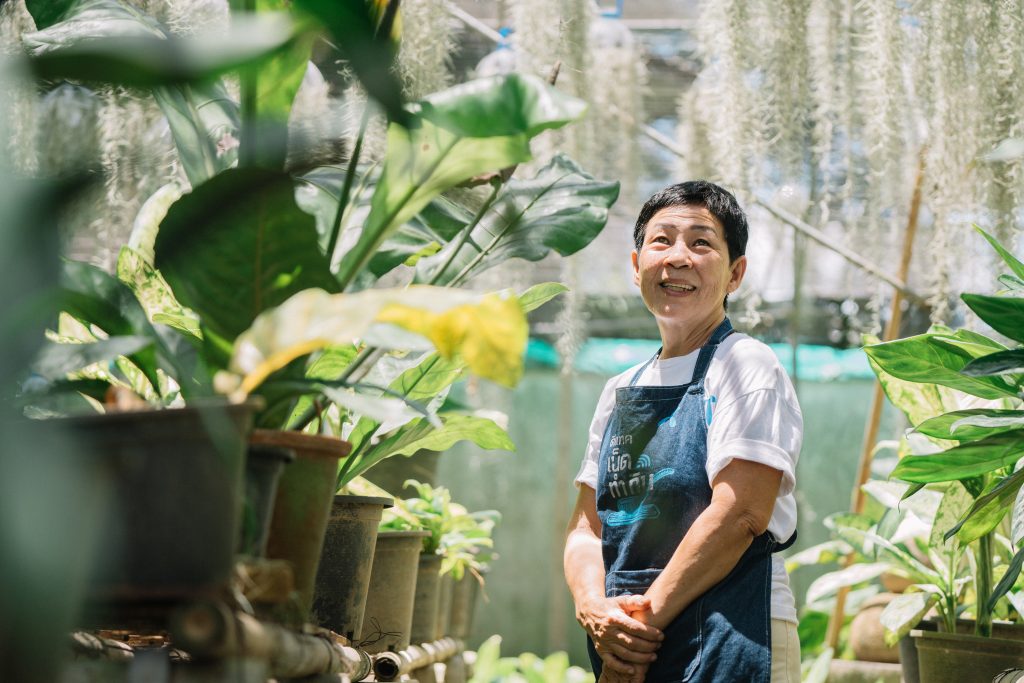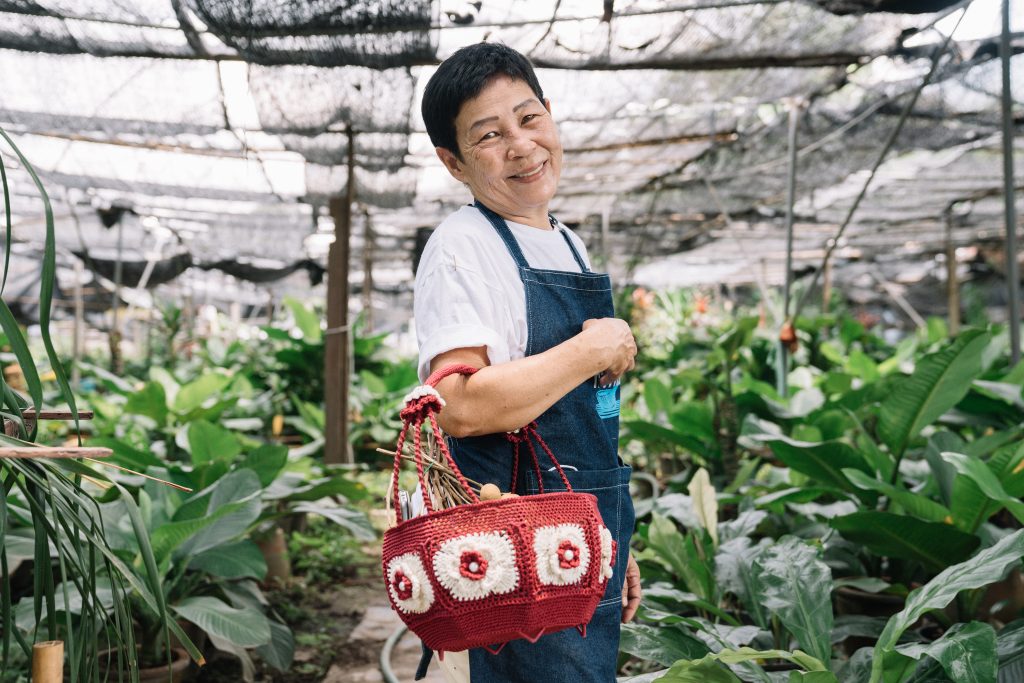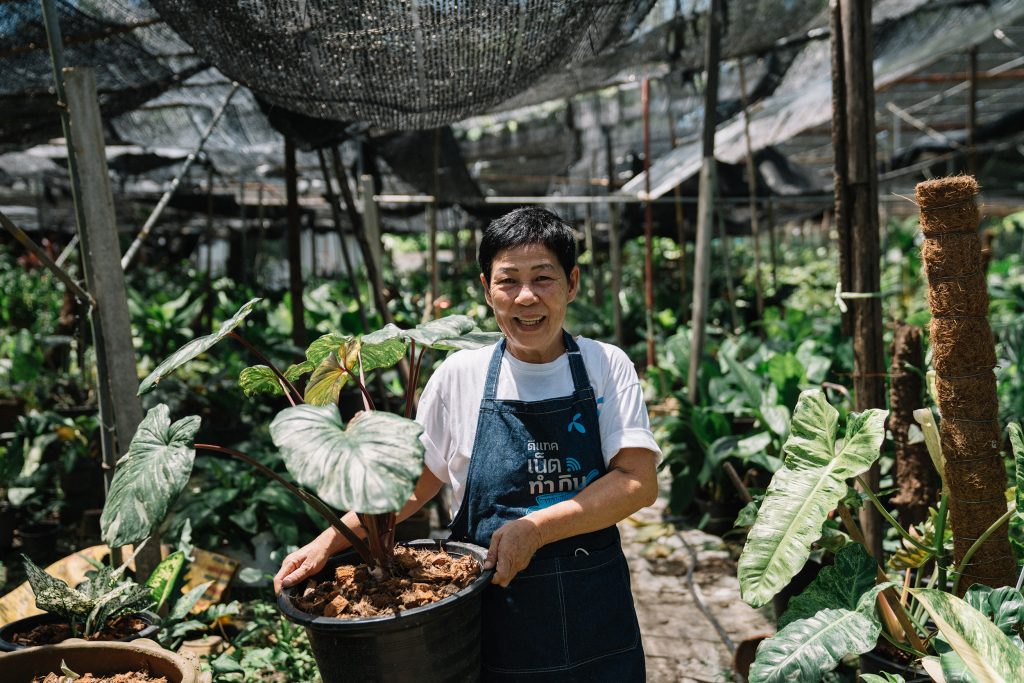According to the National Statistical Office of Thailand, there are about 13 million elderly in Thailand (aged over 60), one-third of whom live alone or with their senior partners. Without adequate social safety nets, this could impact their livelihood and poses social and economic challenges to the country as it is stepping into a ‘super aged[1]’ society in the next decade.

Aging Alone
In Chiang Mai’s Saraphi district, hundreds of elders live alone. They have been abandoned by their family or don’t receive adequate care. Local administrative bodies, foundations, and the civil society have stepped in to offer support in various forms. One of them is Kunyasa Chaikularb, a former social worker from Chiang Rai.
Ms. Kunyasa moved to Chiang Mai two decades ago to start her social work career at a foundation whose aim was to improve livelihood of children orphaned by HIV and AIDS. Later she received funding from foreigners who wanted to help out people with physical disabilities and the elderly who live alone and need support.

“I started working to support unaccompanied seniors after I witnessed these problems myself. Many older people spend their final years as a worker at longan plantations, earning a daily wage of 200 baht,” Ms. Kunyasa said. “Some of them struggle to make ends meet as a scavenger and live in a small cottage without access to electricity, tap water, or even life essentials. It’s very depressing to see.”
Living Crafts
Today, the 59-year-old Kunyasa lives by herself in a rented room in Chiang Mai with her three dogs. After leaving her social work career, she started earning a living from knitting and selling handmade bags, a skill which she inherited from her mother and during her years with the foundation as she had to make handicrafts for fund raising.
“I also looked at YouTube videos to see how people did it and what tools are required. I received good feedback from bag wholesalers and friends. I also sold them at night markets. I was producing at full capacity,” Ms. Kunyasa said.

Boasting unique styles, her handmade bags are neat and of high quality. They provided her with enough income to support herself. But as most of her customers were tourists, when the country was hit by the pandemic, her income gradually dropped to the point where she couldn’t sell a single bag. That was when she started using digital technology to tap into new business opportunities.
“One day I noticed the dtac Net for Living ad on Facebook. Being a dtac customer for more than 20 years, I registered for the program right away. I wanted to see if I would be able to make a living from selling online,” she said.
Advancing Quality of Life
Ms. Kunyasa was selected as a participant in the dtac Net for Living program, where she was trained on online channels, social media marketing strategies, and storytelling.

“The dtac Net for Living team equipped me with very good advice. At the beginning, my posts got zero like and comment. But after a while more people started seeing my posts and became aware of opportunities the online world brings,” Ms. Kunyasa said with a smile.
When the bag sales dropped, Ms. Kunyasa switched to selling plants online as she spotted its growing popularity. She now uses connectivity to grow income streams for herself, earning on average 15,000 baht per month.
“The online world opens up new possibilities for the elderly. It gives us smiles and a way to build new streams of income. It’s also a means to access important government services, such as the co-payment scheme, which is critical for those who live alone,” she said. “Thanks to this, we are not left behind. Digital technologies and connectivity can really improve our quality of life.”
[1] 28 percent of the population is 60 years old or over.

